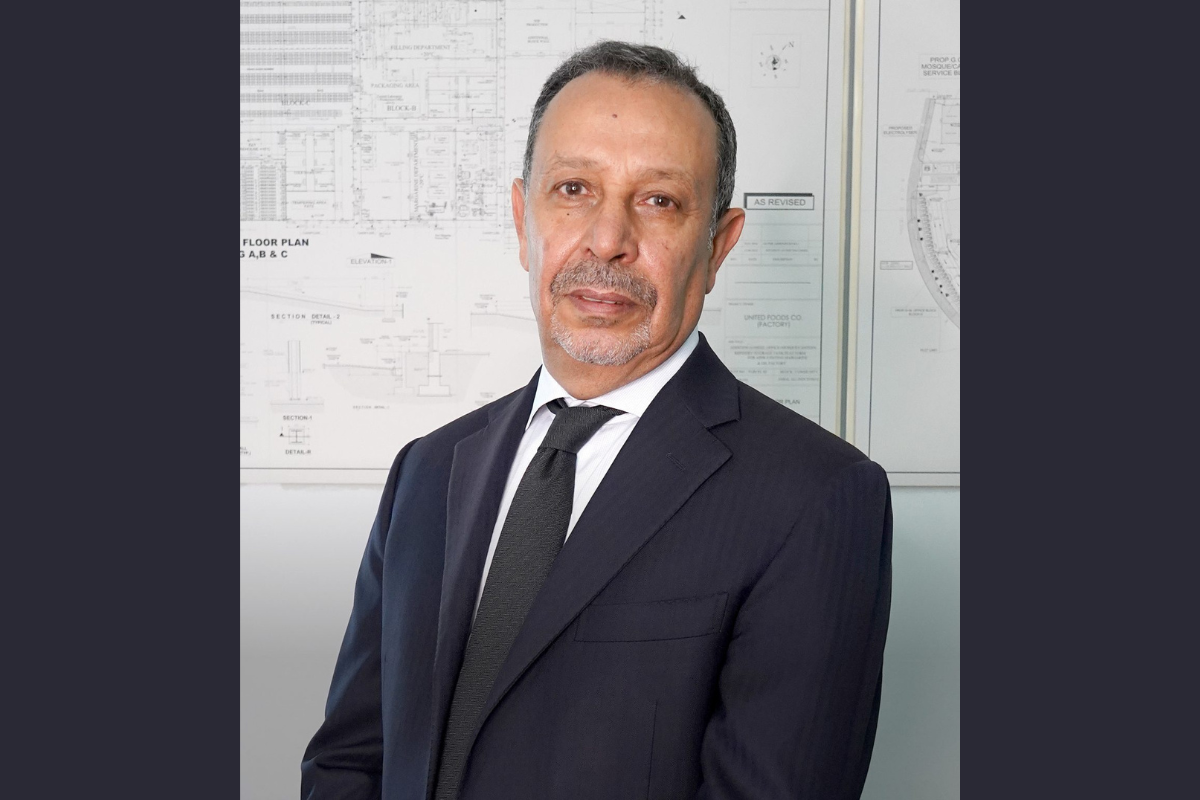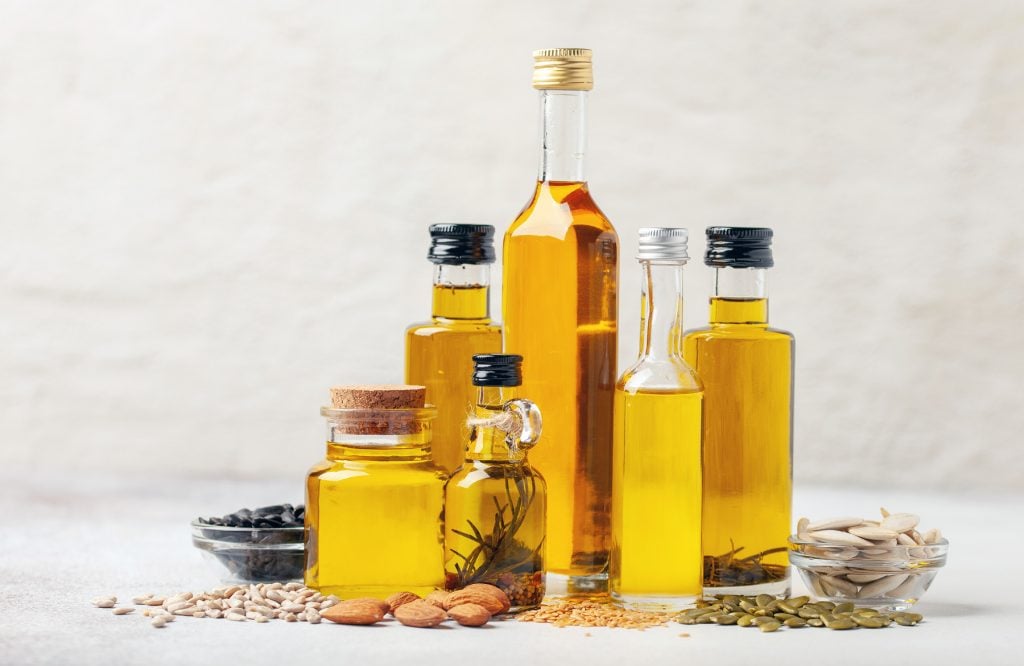Push and Pull: Fethi Khiari
When Fethi Khiari took the CEO role at United Foods Company 10 years ago, he faced a stiff challenge as civil war took out its number-one market. But through a process of diversification and innovation, he has returned the company to a strong position.
Just 11 years ago, a hefty 60 per cent of Dubai-based United Foods Company’s turnover was generated by sales of Aseel Vegetable Ghee in Syria. It was so popular there that many Syrians assumed it was a local product, explains CEO Fethi Khiari.

But in 2011, civil war broke out – a conflict that is still going to this day. "It became impossible to export our product to that country," Fethi tells The CEO Magazine. "So there’s 60 per cent of our business that all of a sudden, in just two years, disappeared totally."
When he joined the business in 2012, Fethi immediately took it upon himself to shift the company’s reliance on export to a reliance on the local market. "A company that relies on export is a company that is accepting to live very dangerously," he says. "So that’s the most important thing I can say I did."
It took 10 years for the company to shift its balance, building relationships with a wide range of stakeholders so that the majority of its turnover was instead generated in its local market, the UAE. Now United Foods has 14 per cent market share of the UAE edible oil market, whereas 10 years ago it held just 0.02 per cent. Similarly it has boosted its share of the UAE margarine market from 47 per cent in 2012 to 67 per cent.

I understood the issues the company was suffering from, and frankly speaking, with the experience I had working in countries as different as Brazil, Egypt, Spain and Switzerland, I found the solution was clear.
"We were at 63 per cent market share in ghee," Fethi continues. "We are today touching 80 per cent. That means total domination."
Diversifying into other food categories is also helping secure the company’s position, with it now distributing big brands of ice cream such as Oreo, Cadbury and Nestlé, and other brands of frozen food, shea and dairy products.
"We really increased the power of push in our pipeline to the trade," Fethi explains. "And we developed communication strategies, in particular through social media, to also help with the pull."
There is little doubt Fethi has guided the company in the right direction. When he took the helm 10 years ago, the company’s bottom line was an average of €260,000–€522,000 a year. "In 2020, we did €9.4 million," he says proudly. And turnover hit €117.5 million in 2020, rising to €138.4 million in 2021. "This year, 2022, the target is €162 million," he reveals.
Fethi admits that the soaring price of raw materials took its toll on the company’s 2021 bottom line, but overall the picture is a good one, marking a significant improvement on those difficult times 10 years ago, when he was drawn to the company for mostly emotional reasons. He had been eager to work with a brand as iconic as the Aseel brand, and he was confident he had the vision required to take it forward.
"I understood the issues the company was suffering from, and frankly speaking, with the experience I had working in countries as different as Brazil, Egypt, Spain and Switzerland, I found the solution was clear," he recalls. "And it was: stop with the eyes on export, start working harder on the local market and invest."
As clear as the solution was to him, he realised it would take a lot of work. But with the support of the company stakeholders, he decided to take it on.
Entering new categories
Now he continues to drive the company forward by continuing to widen its product portfolio. "We have grown lately through the local markets, through distribution, and in particular through distribution of third-party products, but again this activity may have its own risk," he explains. "So to mitigate that, we decided to widen our own production portfolio, not only to buy ice creams from third parties, but to start increasing our own capacity for production of new products."
This means new production lines in new categories of food, and also the launch of United’s first non-food products in the form of organic personal care products.
The new lines cater to growing demand from consumers for healthier products for themselves and their families. "At the same time, they are requiring prices to be similar with the conventional product they are buying today, and this is very challenging because organic products today are much more expensive to produce than the others," Fethi stresses. "So we are working hard on finding the best supply model of organic products for our company. And this is the number-one challenge we are having."
Competition here is much, much more fierce than in any other place in the world because the market is 100 per cent open.
The other challenge the company faces is the openness of the UAE market, with new competitors constantly entering the arena. "Competition here is much, much more fierce than in any other place in the world because the market is 100 per cent open," he says. "It’s a market where the consumer is more and more demanding, and it is a market where retail has a stronger position than the industry."
Having already achieved so much, Fethi is now turning his attention to the areas of innovation and social responsibility. "We are constantly monitoring the tastes, and the needs, of each kind of consumer in the UAE," he says.
A healthy vision
United is also working hard to create healthier products, harnessing innovation for the benefit of its customers. "I have to consider that as part of our social responsibility, to bring healthier products in and to also bring healthier packaging to our consumers," he says.
Not only is the company trying to cut down on plastics and reduce its carbon footprint, it has also invested in the creation of a solar power plant in its factory, with more than 4,000 solar panels. "That is reducing our carbon footprint by the equivalent of 330 megawatts," Fethi says. "We are avoiding 1,200 tonnes of carbon emissions."
The new energy source also provides around half of the needs of the factory and warehouses, but Fethi has no intention of stopping there, instead saying it is "just the start". And with so many achievements already notched up in his 10 years at the helm, it is easy to believe there is far more to come.
Musim Mas Holdings